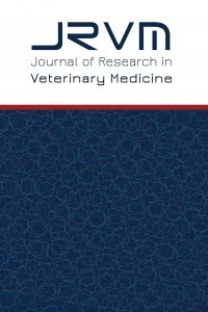AKARYAKIT TERMİNALİ OPERASYONLARINDA KAYIPLARIN ÖNLENMESİ: TÜRKİYE’DE BİR VAKA ÇALIŞMASI
Rafineriden çıktıktan sonra, akaryakıt ürünleri gemilere, gemilerden yakıt depolama ve dağıtım operasyonlarını yürüten terminallere ve terminallerden istasyonlara kara tankerleri ile dağıtılır. Ürün miktarındaki kayıp problemleri, ürünün terminal tanklarında yer değiştirmesi ve aynı zamanda doldurma işlemleri sırasındaki hareketleri sonrasında ortaya çıkar. Bu çalışmada Türkiye'deki en büyük akaryakıt terminallerinden birine ait tüm operasyon süreçleri ele alındı ve bu terminalde depolama, dağıtım aktarma faaliyetleri ve bu sırada oluşan kayıplar incelendi. Terminal operasyon süreçlerinde kayba neden olan elemanlar, hata modu ve etki analizi (FMEA) tekniği ile incelenmiştir. Bu analize göre, önlemlerin öncelikli olarak alınacağı alanlar ve çözüm yaklaşımı firmaya sunulmuştur. Bu yaklaşım, arızaların oluşmasının nedenlerini ve aynı zamanda şirketin zararını kontrol etmeyi sağlarken, yangın ve dökülme gibi risklerin önlenebileceği tedbirler ortaya çıkarmıştır.
Anahtar Kelimeler:
Kayıpların önlenmesi, akaryakıt terminali, hata modu ve etkileri analizi(HMEA)
Loss Prevention Of Fuel Terminal Operations: A Case Study In Turkey
Upon exiting the refinery, fuel products are distributed to vessels, from vessels to the terminals conducting the activities of fuel storage and distribution operations, and from terminals to stations via road tanker. Problems of loss in the product quantities occur after the movements of displacement of the product in terminal tanks and simultaneous the movements during filling operations. In this paper all operation processes of one of the fuel oil terminal in Turkey. The fuel products were received upon the unloading of the vessel and storage and distribution activities were carried out in this terminal. The elements causing loss during the terminal operation processes were examined with the failure modes and effects analysis (FMEA) technique. According to this analysis, the fields for which measures would be taken with precedence and a solution approach were presented for the company. While this approach is providing the causes of occurrence of failures as well as the control of loss for the company, the risk of fire and spillage likely to occur can be prevented as well.
Keywords:
Loss prevention, fuel terminal, FMEA,
___
- Arslan Özcan, Ismail Deha Er, (2008) SWOT analysis for safer carriage of bulk liquid chemicals in tankers, Journal of Hazardous Materials, Volume 154, Pages 901–913. doi.org/10.1016/j.jhazmat.2007.10.113
- C.D. Argyropoulos, M.N. Christolis, Z. Nivolianitou, N.C. Markatos (2012) A hazards assessment methodology for large liquid hydrocarbon fuel tanks, Journal of Loss Prevention in the Process Industries, Vol 25, pp 329-335 DOI: 10.1016/j.jlp.2011.12.003.
- Balat, Mustafa, (2011) Security of energy supply in Turkey: Challenges and solutions, Energy Conversion and Management, Volume 51, Issue 10, October, Pages 1998–2011. doi.org/10.1016/j.enconman.2010.02.033
- F. Evrendilek , C. Ertekin, (2003) Assessing the potential of renewable energy sources in Turkey, Renewable Energy, Volume 28, Pages 2303–2315. DOI: 10.1016/S0960-1481(03)00138-1
- Ravi K. Sharma , Bhola R. Gurjar , Akshay V. Singhal , Satish R. Wate , Santosh P. Ghuge , Rajat Agrawal , (2015) Automation of emergency response for petroleum oil storage terminals, Safety Science, Volume 72 , Pages 262–273 doi.org/10.1016/j.ssci.2014.09.019
- Yu Mingzhu, Lee Chung-Yee, Wang James Jixian, (2016), The regional port competition with different terminal competition intensity, Flex Serv Manuf J, DOI 10.1007/s10696-016-9254-6
- Yüksel İbrahim, (2010) Energy production and sustainable energy policies in Turkey, Renewable Energy, Volume 35, Issue 7, Pages 1469–1476. doi.org/10.1016/j.renene.2010.01.013
- EPDK, Accessed at 2 February 2015, available at http://www.epdk.gov.tr/documents/petrol/rapor_yayin/Ppd_Yayin_Rapor_Ocak_2014.pdf
- ISSN: 2148-4147
- Yayın Aralığı: Yılda 3 Sayı
- Başlangıç: 2002
- Yayıncı: BURSA ULUDAĞ ÜNİVERSİTESİ > MÜHENDİSLİK FAKÜLTESİ
Sayıdaki Diğer Makaleler
ISIL YÜK ALTINDA FONKSİYONEL DERECELENDİRİLMİŞ EĞRİ EKSENLİ PANELİN ELASTİK SINIRI
NESNELERİN İNTERNETİ İÇİN YENİ MESAJ İŞLEME MEKANİZMASI
Pomza ve Gomalak İçeren Solvent Bazlı Boyalar Üzerine Yeni Bir Araştırma
MERKEZİ VE YERİNDE ATIKSU GERİ KAZANIMININ KARŞILAŞTIRILMASI: BİR TURİZM BÖLGESİ İÇİN ÖRNEK ÇALIŞMA
Selda MURAT HOCAOGLU, İpek ERZİ, Şeyla ERGENEKON
Faisal İbrahim Mohamed IBRAHIM, SAİT ESER KARLIK
Esra TEKİN, HASAN TÜRE, IŞIL BARUTÇU MAZI
Faisal Ibrahim Mohamed IBRAHIM, Sait Eser KARLIK
KOMŞU ZEMİN YAPILARININ PARAMETRİK ANALİZİ “DOLGU-ŞEV ETKİLEŞİMİ”
Zülal AKBAY ARAMA, Muhammed Selahaddin AKIN, Safiye Feyza ÇİNİCİOĞLU
